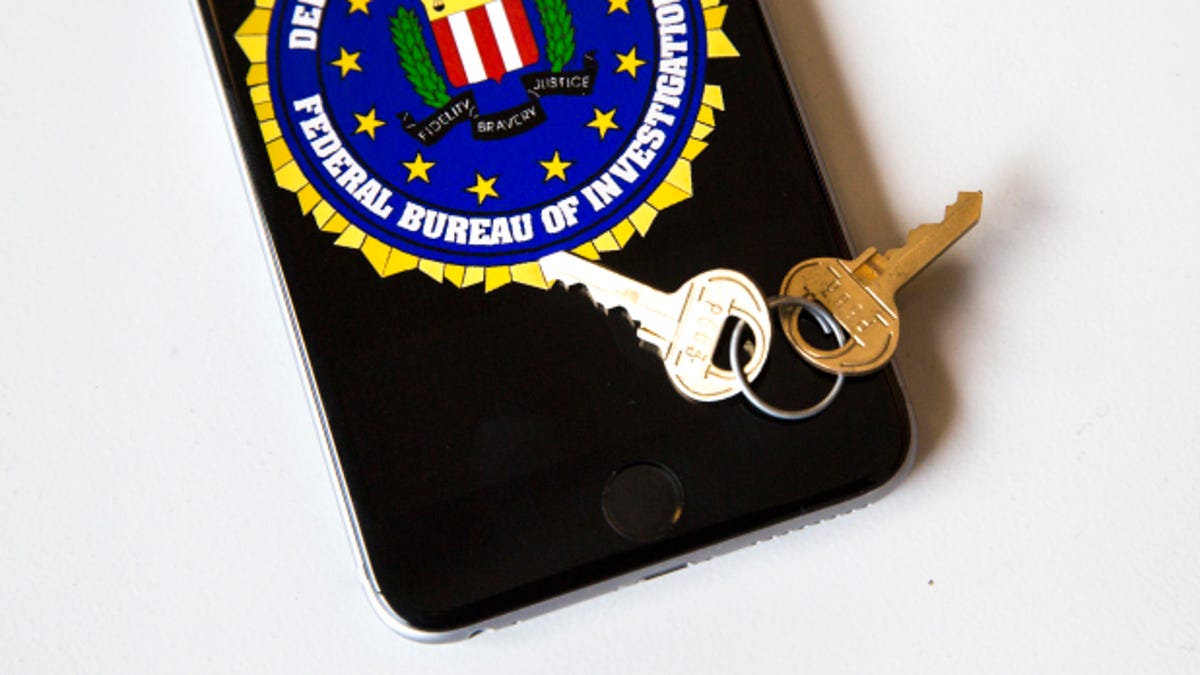Apple called out for lack of 'substantive' help unlocking gunman's iPhones
The iPhone maker says it's handed over all the information it has to investigators.

The FBI has received court authorization to search two iPhones, according to US Attorney General William Barr.
Attorney General William Barr called out Apple on Monday, saying the tech giant hasn't "given us any substantive assistance" in unlocking two iPhones that belonged to the gunman in a shooting at a Florida Navy base. Barr said the shooting, which left three people dead, was an act of terrorism.
Barr said that the FBI had received court authorization to search two iPhones but that "both phones are engineered to make it virtually impossible to unlock them without the password."
"This situation perfectly illustrates why it is critical that investigators be able to get access to digital evidence once they have obtained a court order based on probable cause," Barr said. "We call on Apple and other technology companies to help us find a solution so that we can better protect the lives of Americans and prevent future attacks."
Apple on Monday said it "rejected" the characterization it had been less than helpful and said it responded to requests for assistance in the Florida investigation in a timely manner, adding that it continues to offer assistance. Information provided in response to initial law enforcement requests included iCloud backups, account information and transactional data for multiple accounts, Apple said.
"We responded to each request promptly, often within hours, sharing information with FBI offices in Jacksonville, Pensacola and New York," Apple said in a statement. "The queries resulted in many gigabytes of information that we turned over to investigators. In every instance, we responded with all of the information that we had."
Like Barr, other law enforcement officials have pushed for tech companies to create back doors into encrypted devices to aid investigations. Under the Trump administration, Barr has renewed this call for companies to loosen encryption protections for law enforcement investigations.
Tech giants like Apple and Facebook have stood firm on encryption standards, despite the Justice Department's push against the protection. At a CES panel on privacy last week, Apple's chief privacy officer, Jane Horvath, defended the company's stance on encryption.
"We have helped in solving cases, preventing suicides. We are very dedicated, and none of us want that kind of material on our platforms," Horvath said. "But building [back door] encryption is not how we are going to solve those issues."
She noted that she also manages Apple's law enforcement compliance team, which responds to requests usually within the first 24 hours.
In 2016, Apple resisted the FBI's attempt to force the company to unlock an iPhone used by a terrorist, setting up a legal battle between security and privacy.
The FBI eventually found a third party to unlock the phone, and that case largely faded from public debate. A separate case in New York in 2016 that involved a confessed drug dealer ended in a similar fashion, with the FBI dropping its request for Apple's help after finding another way into the iPhone.
Law enforcement agencies continue to call for access to encrypted communications and devices, while tech companies warn that doing this would weaken the protection and allow potential criminals to take advantage of that same access.
"End-to-end encryption is critically important to the services that we have come to rely on," Horvath said at CES. "If you're going to be able to rely on having health data and finance data on our devices, then we need to make sure that if you misplace that device, you're not losing your sensitive data."
Privacy advocates have also supported Apple's stance, saying weakened encryption could be dangerous.
"There is simply no way for Apple, or any other company, to provide the FBI access to encrypted communications without also providing it to authoritarian foreign governments and weakening our defenses against criminals and hackers," said Jennifer Granick, surveillance and cybersecurity counsel with the ACLU, in a statement Monday.
In December, US lawmakers warned tech giants like Facebook and Apple that they would pass legislation to regulate encryption if companies couldn't figure a way out to cooperate with police investigations.
Originally published Jan. 13, 12:08 p.m. PT.
Updates, 1:27 p.m. PT: Adds context on encryption and Apple; 2:36 p.m. PT: Adds comment from the ACLU; and 6:20 p.m. PT: Adds Apple's statement.



